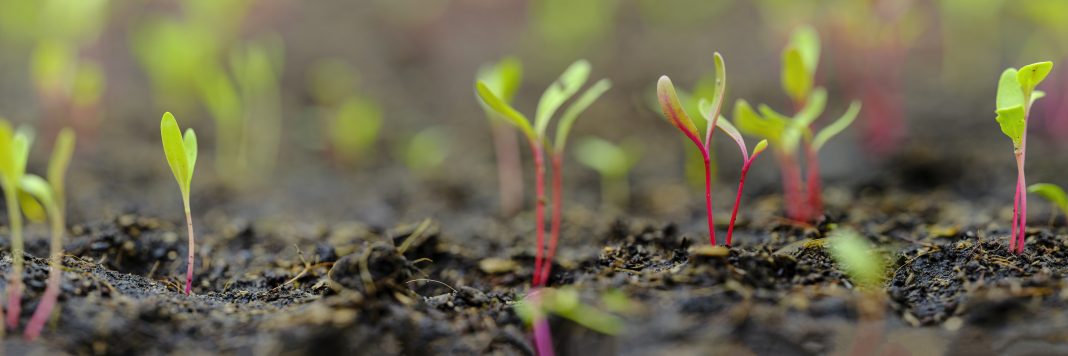Ermita Hernandez Heredia, Associate Professor from the University of Puerto Rico, details enhancing vegetable production and soil health in Puerto Rico in this organic soil amendments particular focus
Puerto Rico is an island with a population of over 3 million people, but it produces less than 15% of the food it consumes. The Puerto Rican food system is particularly vulnerable because of adverse climate change effects, such as the increase of extreme weather events and the dependence on importation.
Agricultural economists and food security experts recommend priority in the production and accessibility of short terms crops such as vegetables. This should be aligned with sustainable farming practices to be accessible to future generations.
Agriculture production in Puerto Rico is unsustainable due to rapid industrialization in production regions. Also, this sector relies heavily on agrochemical products. At a state level, there is no mitigation plan to help with adverse impacts caused by contamination or climate change effects, thus raising food security issues.
Impacts on soil & crop health
Soil health is well related to the quantity and quality of organic matter it contains. Therefore, using organic soil amendments such as cover crops, manure, biochar, or compost provides lasting benefits for development and proper plant growth.
Healthy soils are more resilient to changes and are essential since it helps sustainably increase food security. In addition, sources of organic materials in the soil provide many physical, chemical, and biological benefits. All these advantages prevent erosion caused by wind or excess rain and protect the soil against atmospheric events and climate change.
Using many organic amendments in the soil has been shown to improve crop production by improving soil structure, water holding capacity and suppressing pests and disease.
Exploring the uses of compost
Compost is a product of the decomposition of organic waste by macro and microorganisms. The quality or nutrient composition depends on the organic matter that is added at the beginning of its process.
Many researchers have demonstrated the benefits of increased nutrients, soil microbiota, carbon sequestration and soil organic matter. In addition, improvements in soil structure and nutrition, reduction of pests and diseases in crops, environmental impact in farming and crop yield have all been recorded.
The benefits of biochar
Biochar is black carbon produced from biomass waste products converted into a stable form. It is one of the most affordable negative emission technologies for future large-scale carbon dioxide sequestration.
The results of biochar studies often differ due to biochar’s properties being significantly influenced by its starting material and pyrolysis temperatures.
The overall benefit of biochar is that it provides the soil with greater retention of nutrients and moisture and transport of heavy metals from the soil, thus reducing contaminants.
Many studies have shown how different biochar types applied at low rates can be stimulatory by promoting seed germination or acting as plant growth regulators and increasing resistance to biotic and abiotic plant stress.
Ongoing University of Puerto Rico research
To address the issue, Dr Ermita Hernández and her team at the University of Puerto Rico have investigated the use and rates of organic soil amendments to increase vegetable production while improving soil health in a different region of the island.
Various compost & rates in vegetable crops
A project directed by Dr Hernandez looked specifically at the rates of coffee pulp or composted chicken mature in different regions where vegetables are grown on the island. Rates were calculated based on the nutrient nitrogen needs of tomatoes, squash and cabbage.
The study showed that in the semi-arid region when applying organic amendments to vegetable crops based on 50% of crop N inorganic needs, the yield was similar to applying compost based on 100% crop N needs, but the opposite was observed in the wet region; crops needed to use 100% of crop N needs to ensure a competitive yield.
In addition, the study shows that using a higher amount of compost, either coffee or chicken manure, reduced up to 78% of plants expressing silverleaf, a physiological disorder in squash which can reduce photosynthetic rates due to the presence of high whiteflies population.
The use of coffee pulp compost showed an increase of 400% in the mean change of soil organic matter compared to the use of organic commercial fertilizer in six months in the semi-arid region in tomato crops.
Biochar & spent mushrooms compost in tomatoes
A recent project, co-directed by Dr Hernandez, examined the combined effect of biochar, and spent mushroom compost and its impact on tomato quality, yield and soil health.
The team created plots and amended the soil with six different treatments; pine wood biochar, spent mushrooms compost, organic commercial fertilizer, and combinations of these. These treatments were applied and incorporated the same day, six weeks before transplanting tomato, the leading vegetable crop produced on the island, and have drastically decreased in recent years.
Dr Hernandez’s team faced the challenge of monitoring pre and post- soil chemical composition, soil moisture, tomato growth development, nutrient plant uptake, tomato fruit quality parameters and yield.
The first trial was run in 2023, which will provide the team insight into the potential to improve production and assess soil health, looking into the benefits of soil structure changes caused by traditional farming practices that usually cause soil degradation infiltration and water retention problems.
Preliminary yield results show that spent mushroom compost had a similar total yield to the organic commercial fertilizer. Still, compared to using biochar, it increased the total yield of tomatoes by 31%.
Dr Hernandez and her colleagues will evaluate soil health and tomato quality differences. They have hypothesized that using biochar will increase nutrient retention and water-holding capacity. At the same time, the fruit’s chemical composition will vary due to the changes in nutrient uptake by treatments.
Awarded by USDA NIFA Hatch 7004182 Title “Effect of organic soil amendments on soil quality and production of tomato Solanum lycopersicum”

This work is licensed under Creative Commons Attribution-NonCommercial-NoDerivatives 4.0 International.


